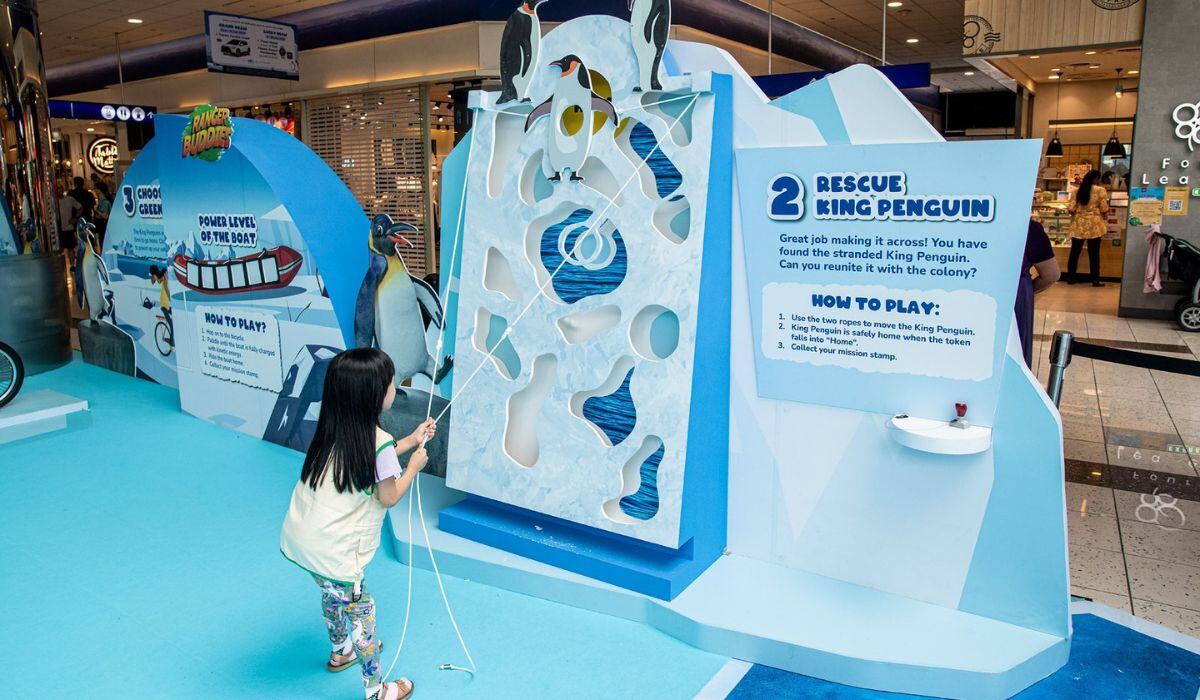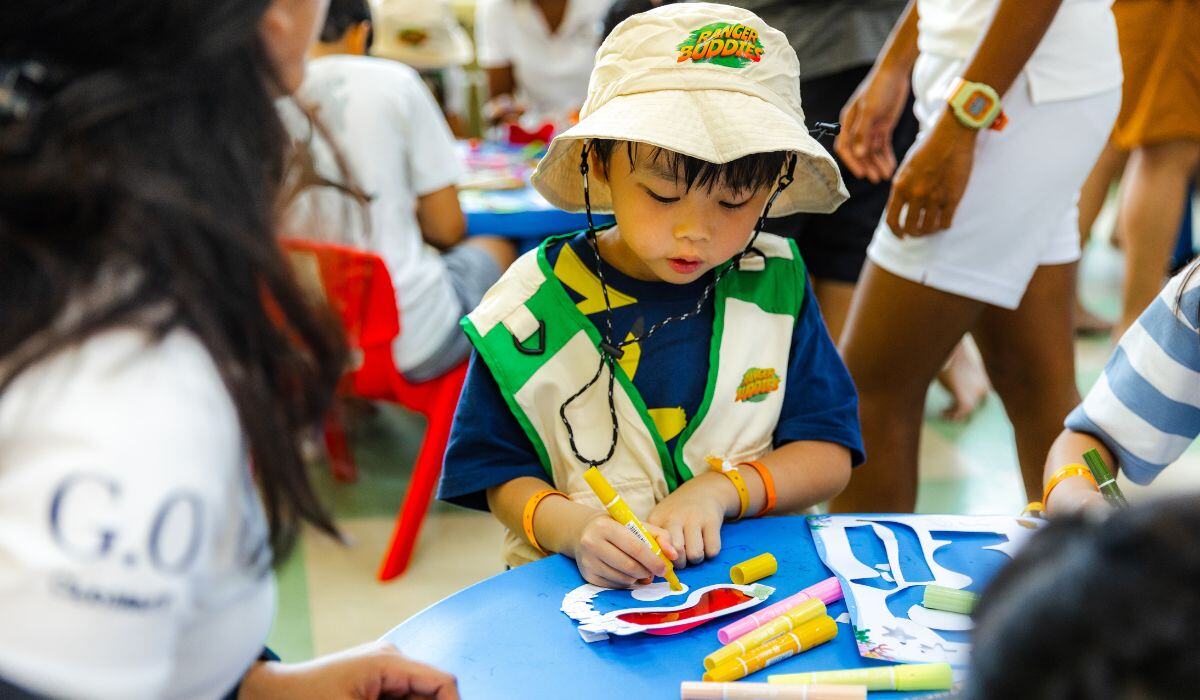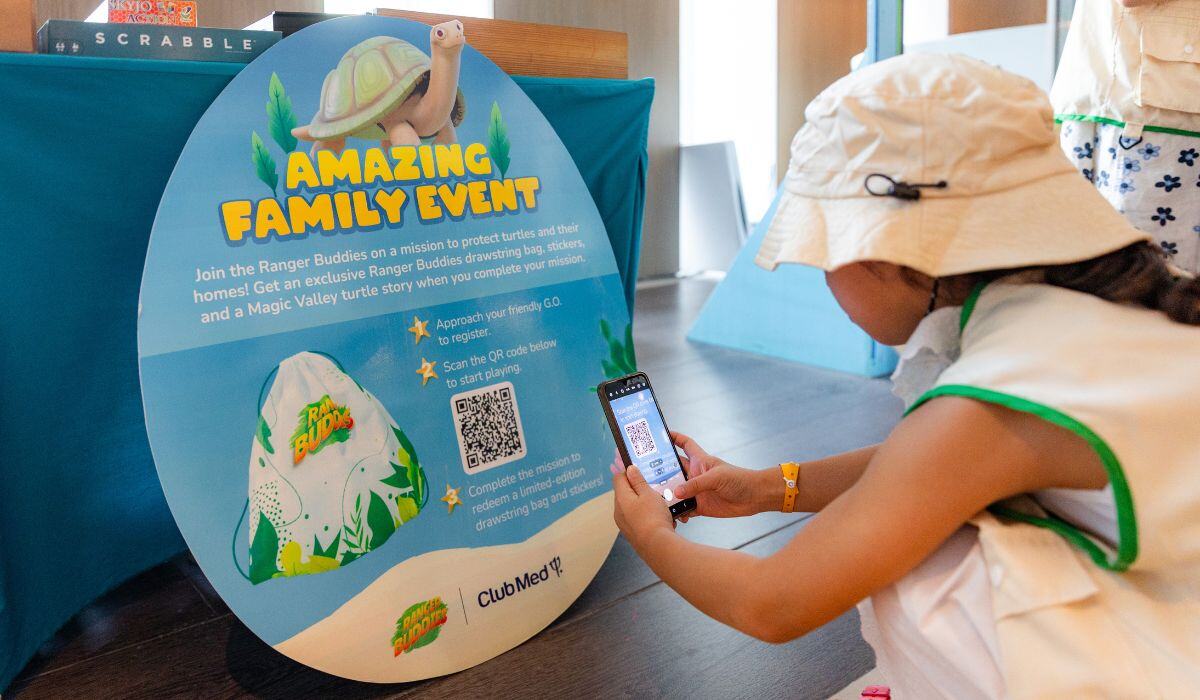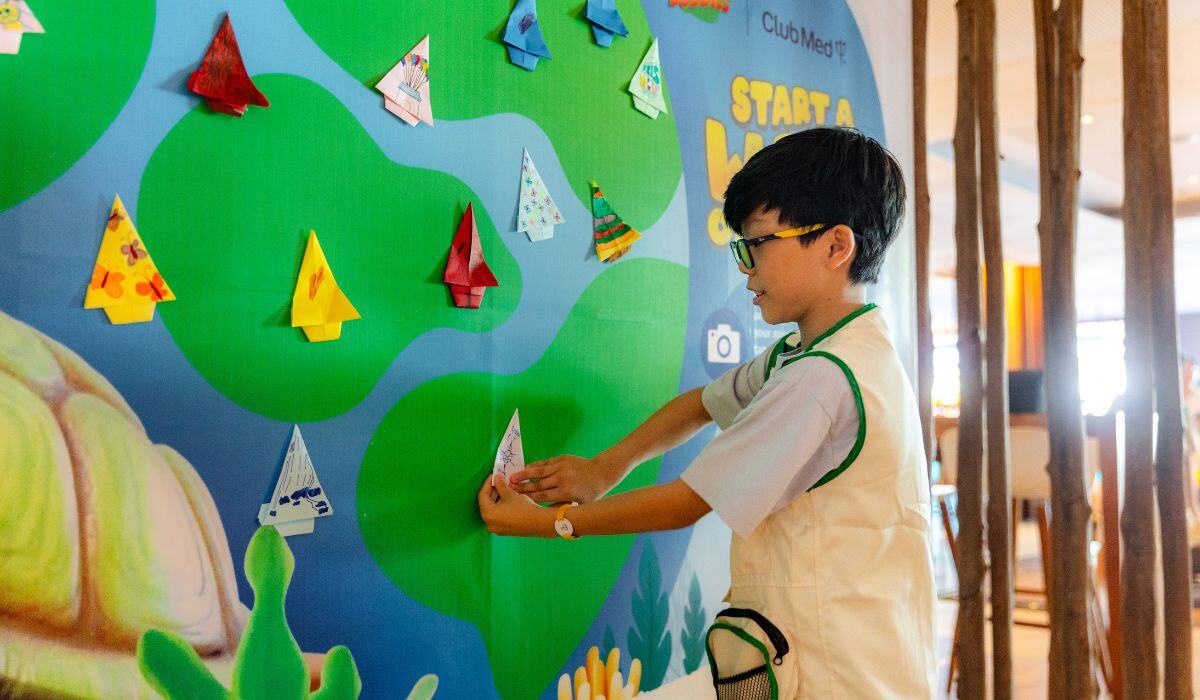Going beyond academic success to raise happy, fulfilled kids
To successfully navigate an unpredictable world, children need to be more than just good students.
As parents, we all want the best for our children. Naturally, we want them to excel, secure stable jobs and enjoy fulfilling lives. Traditionally, academic success has been viewed as the ultimate key to achieving these goals. But times are changing, and so are the skills our children need to thrive. When industries shift and jobs change, will academic achievements ensure that our children have the adaptability and resilience to navigate the future?
Increasingly, soft skills, those intangible yet invaluable abilities that are transferable across various life situations, are proving to be more necessary than ever in preparing our children for the challenges and opportunities of tomorrow[1].
 What are soft skills?
What are soft skills?
Unlike hard skills, which are technical and measurable (like solving equations or coding), soft skills refer to a set of personal attributes and interpersonal skills that enable us to navigate our environment, interact effectively with others and contribute in various settings.
In our Ranger Buddies missions, we focus on the seven essential C.O.U.R.A.G.E. strengths: Curiosity, Optimism, Undauntedness, Resourcefulness, Adaptability, Grit and Empathy. These qualities provide the foundation of future-readiness, empowering children to face an unpredictable future with confidence.
Why do soft skills matter for your child's future?
The modern workplace and society are evolving at a rapid pace, and the demands placed on people are changing just as quickly. The Singapore Institute of Management examined the importance of soft skills and outlined why developing your child’s soft skills now will prepare them for success later.
- The workplace is becoming more interpersonal: In today’s workplaces, collaboration and teamwork are non-negotiable. Employers value individuals who can communicate clearly, build relationships and work well with diverse groups. A study by the Society for Human Resource Management[3] highlights that traits like dependability, adaptability and communication, soft skills, are among the top qualities employers seek in candidates.
- Soft skills predict career success: A groundbreaking study by Google, known as “Project Oxygen”[4], revealed that the most successful employees weren’t necessarily the ones with the highest technical expertise. Instead, those who excelled displayed strong soft skills like communication, empathy and problem-solving. This finding underscores that while technical skills can get someone in the door, soft skills help them climb the ladder.
- Soft skills are AI-proof: The world is changing rapidly. Roles that exist today may disappear tomorrow, replaced by ones we can’t yet imagine. As automation and AI start to replace technical and routine tasks, the ability to pivot when needed is key to survival. Teaching children adaptability ensures they can thrive in a constantly evolving environment. Learning to embrace change, juggle multiple commitments and manage stress equips them for challenges in both their future career and life.
- Leaders are defined by soft skills: Good leaders aren’t just those with deep expertise; they’re those who can inspire, motivate and connect with others. Leadership demands skills like empathy, responsiveness and the ability to build strong relationships. Encouraging your child to develop these strengths will prepare them to take on leadership roles, regardless of their chosen career path.
- Soft skills enhance hard skills: Even the most technically skilled professionals need soft skills to truly succeed. For example, a brilliant engineer who struggles to explain their ideas or collaborate with a team will find their potential limited. Soft skills act as the glue that allows people to see the value of their hard skills, making them more impactful.
How can you cultivate soft skills in your child?
Here are practical ways you can help your child develop these critical abilities:
Curiosity: Fuelling a love for lifelong learning
Curiosity is the engine that drives exploration and discovery. It’s the quality that keeps children asking questions, seeking knowledge, and embracing the unknown. In a world where the pace of change is accelerating, curiosity helps children adapt by fostering a love of learning that extends far beyond the classroom.
Kids who are naturally curious approach life with enthusiasm and an open mind. They’re not just focused on finding the right answers; they’re excited to understand the why behind them. This mindset fuels creativity and innovation, empowering them to tackle problems with fresh perspectives. In a future that values thinkers and doers, curiosity is a child’s passport to success.
- Show interest in their questions, even the endless ones.
- Instead of providing answers, ask, “What do you think?” or “How could we find out?”.
- Create an environment where asking questions and making mistakes are celebrated as part of learning.
- Expose them to diverse experiences, such as trips to museums, nature walks, or experiments at home.
- Introduce them to "wonder journals"[6] where they can write or draw their questions and explore them later together.
Optimism: The ability to see what’s possible
Optimism is the ability to see opportunities in every situation. It gives children the confidence to face setbacks and believe in their ability to overcome challenges. With the pressures of academics and the unpredictability of life, optimism helps kids stay grounded and hopeful.
Children with optimism aren’t easily discouraged. They approach tasks with a can-do attitude, viewing obstacles as temporary rather than insurmountable. This positive mindset is essential for resilience, enabling them to persevere in the face of adversity. In a world that demands creative problem-solvers, optimism provides the emotional foundation for innovation and progress.
- When setbacks arise, ask, “What’s something positive you can take from this?” or “What could you do differently next time?”.
- Celebrate their efforts rather than just their results, teaching them that the process matters.
- Model gratitude and a hopeful attitude in your daily life to inspire them to adopt a similar mindset.
- Help them identify "wins" at the end of each day, no matter how small, to reinforce positive thinking.
- Encourage them to surround themselves with supportive and positive influences, including friends and family.
Undauntedness: Courage in the face of the unknown
Undauntedness is the willingness to face challenges, take risks and embrace new experiences. It’s what drives children to try, even when success isn’t guaranteed. In a rapidly evolving world, being undaunted equips kids with the confidence to adapt to change and seize opportunities.
This superpower is particularly important in overcoming the inevitable setbacks of life. Whether it’s presenting in front of a class or pursuing a big goal, undauntedness helps children push past self-doubt and focus on growth. It teaches them that failure is not an endpoint but a stepping stone to success, making them more resilient and determined to reach their full potential in anything they try throughout their lives.
- When they’re hesitant to try something new, remind them of a past success: “Remember when you thought you couldn’t do [that tough thing], but you did? You’ve got this!”.
- Praise their bravery and efforts, regardless of the outcome.
- Normalise failure by sharing your own experiences of overcoming obstacles and learning from mistakes.
- Encourage them to join activities that push their comfort zone, like performing in a school play or trying a new sport or musical instrument.
- Role-play challenging scenarios to help them feel more confident about tackling unfamiliar situations.
Resourcefulness: The skill of creative problem-solving
Resourcefulness is the ability to find solutions to challenges using whatever tools are available. It’s a key trait for children growing up in a world that increasingly values innovation and adaptability.
Resourceful kids don’t wait for instructions or perfect conditions; they figure things out for themselves. This skill is especially valuable when life throws curveballs, as it teaches them to approach problems with creativity and determination. In the future, where adaptability and initiative will be prized, resourcefulness will help your child succeed in environments that demand flexibility and quick thinking.
- Let them tackle problems on their own before stepping in. If they’re stuck, ask, “What else could you try?” or “What would happen if you did it this way?”.
- Provide opportunities for unstructured play and creative problem-solving activities.
- Celebrate their unique solutions, even if they don’t work perfectly, to encourage innovative thinking.
- Introduce simple tasks, like fixing something around the house or planning a small project, to build confidence in problem-solving.
- Teach them to use available resources effectively, such as books, online tools, or seeking advice from others.
Adaptability: Thriving in a changing world
Adaptability is the capacity to adjust to new situations with grace and resilience. As the world continues to evolve, technologically, socially, and environmentally, this superpower will be crucial for success in both personal and professional realms.
Adaptable children are more comfortable with uncertainty and change. They’re not thrown off course when plans shift or challenges arise. Instead, they adjust their approach and keep moving forward. This mindset fosters resilience and prepares them for a future that will require them to embrace diversity, learn new skills and think in a global context.
- Model a positive attitude toward change by saying, “Let’s figure out how we can make this work” when things don’t go as planned.
- Encourage them to try new activities, meet different people and think of alternative approaches to solving problems.
- Role-play scenarios where plans change, helping them practise brainstorming creative solutions.
- Expose them to different environments and cultures through travel, books or virtual experiences to broaden their perspective.
- Teach them mindfulness techniques to stay calm and focused when dealing with unexpected changes.
Grit: The power of perseverance
Grit is the determination to stick with goals and keep working toward them, even when progress is slow or obstacles arise. In a world that often emphasises instant gratification, grit is a rare but essential quality that helps children achieve their dreams.
Children with grit understand that success doesn’t come easily or quickly. They’re willing to put in the effort, learn from mistakes and keep going when things get tough. This perseverance not only leads to academic success but also instils a sense of purpose and achievement that carries them through life’s challenges.
- Help your child set exciting long-term goals and break them into smaller, manageable steps.
- Celebrate their progress regularly, reinforcing their determination.
- When they face challenges, remind them of their previous successes and why their goal matters.
- Create a family culture that values perseverance, such as finishing what you start or committing to a shared project.
- Encourage hobbies that require practice and dedication, like learning a musical instrument or a sport.
Empathy: The foundation of global citizenship
Empathy is the ability to understand and share the feelings of others. It’s the foundation of meaningful relationships, collaboration and a caring approach to the world. In a future where global challenges require collective action, empathy will be more important than ever.
Empathetic children are better at resolving conflicts, working with diverse groups and understanding different perspectives. The superpower of empathy fosters kindness and a sense of responsibility toward others and the environment. By cultivating empathy, we prepare our kids to not only succeed in their own lives but also contribute to a more compassionate and connected world.
- Model empathy by discussing emotions openly. For example, ask, “How do you think they’re feeling? What could we do to help?”.
- Involve them in acts of kindness, such as helping a neighbour or volunteering in a community programme.
- Use books or movies to explore diverse perspectives and discuss how characters might feel in different situations.
- Encourage them to listen attentively when others speak, reinforcing the value of understanding different viewpoints.
- Foster compassion by teaching them to recognise and respect cultural and individual differences.
The long-term benefits of soft skills
Equipping your child with strong soft skills doesn’t just prepare them for a successful career; it also sets them up for a fulfilling life. These abilities enhance personal relationships, build self-confidence, and enable your child to navigate challenges with grace.
Moreover, soft skills are not static. They can be nurtured and developed at any stage of life. Starting early gives your child a significant advantage, setting them on a path to thrive in whatever they choose to pursue. After all, the ultimate goal isn’t just good grades; it’s a life of purpose, connection and fulfilment.
You can foster soft skills through everyday experiences, including Ranger Buddies missions, where children explore the world, confront its challenges, and exercise C.O.U.R.A.G.E. strengths to make a positive impact. Check out what missions your child can go on today!
REVIEWED BY DR JACQUELINE CHUNG
References
[1]Morrison, N. (2016, August 17). It’s not their grades that students should be worrying about. Forbes. Retrieved from https://www.forbes.com/sites/nickmorrison/2016/08/17/its-not-their-grades-that-students-should-be-worrying-about/
[2]SIM Global Education. (n.d.). Why do soft skills matter for students? Retrieved from https://www.sim.edu.sg/news-events/why-do-soft-skills-matter-for-students
[3]Society for Human Resource Management (SHRM). (n.d.). Cultivating critical soft skills. Retrieved from https://www.shrm.org/topics-tools/news/managing-smart/cultivating-critical-soft-skills
[4]BetterUp. (n.d.). Project oxygen: What it is and how it works. Retrieved from https://www.betterup.com/blog/project-oxygen
[5]Sparks, S. D. (2014, October 7). For success in life, character matters as much as academic skill, study says. Education Week. Retrieved from https://www.edweek.org/leadership/for-success-in-life-character-matters-as-much-as-academic-skill-study-says/2014/10
[6]Wilder Child. (n.d.). Wonder journal: Inquiry-based learning. Retrieved from https://wilderchild.com/blogs/news/wonder-journal-inquiry-based-learning




